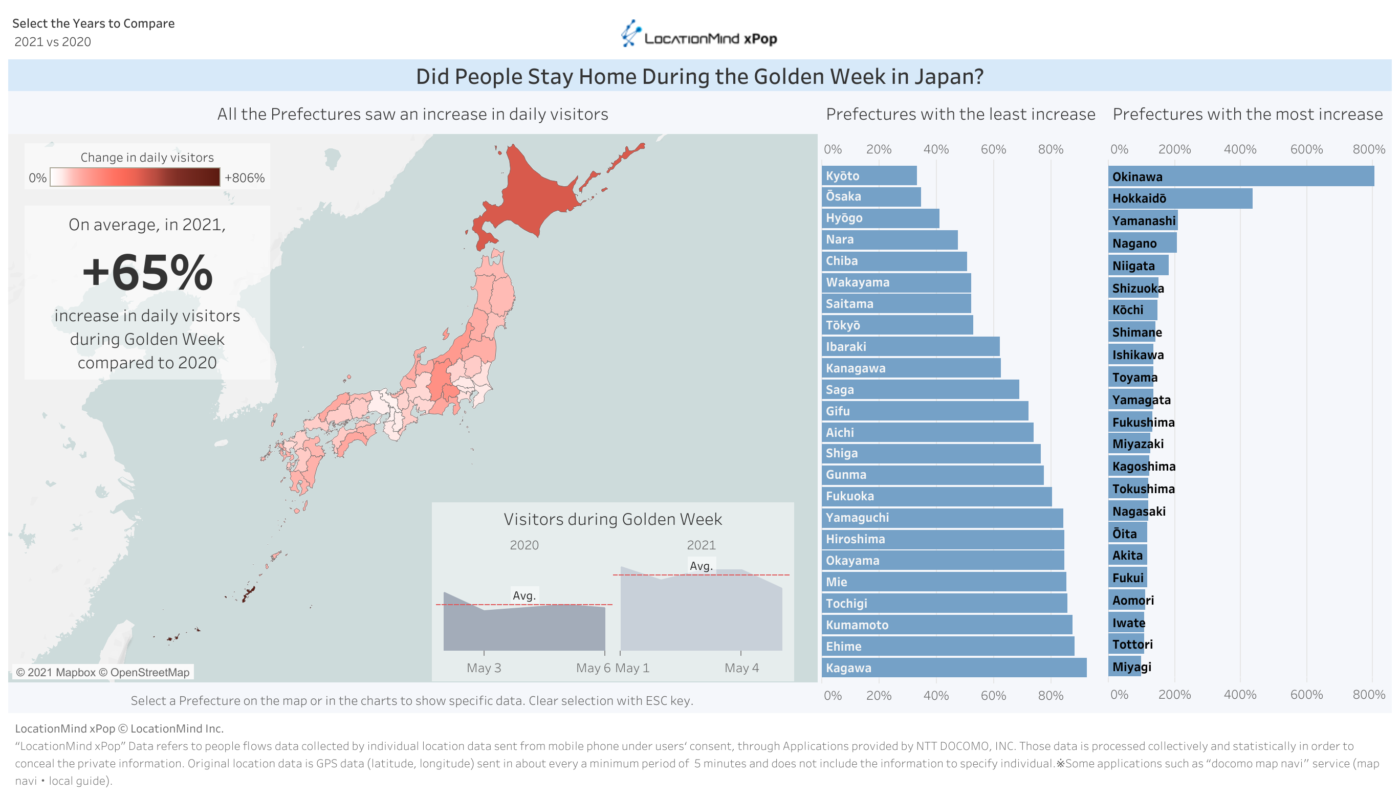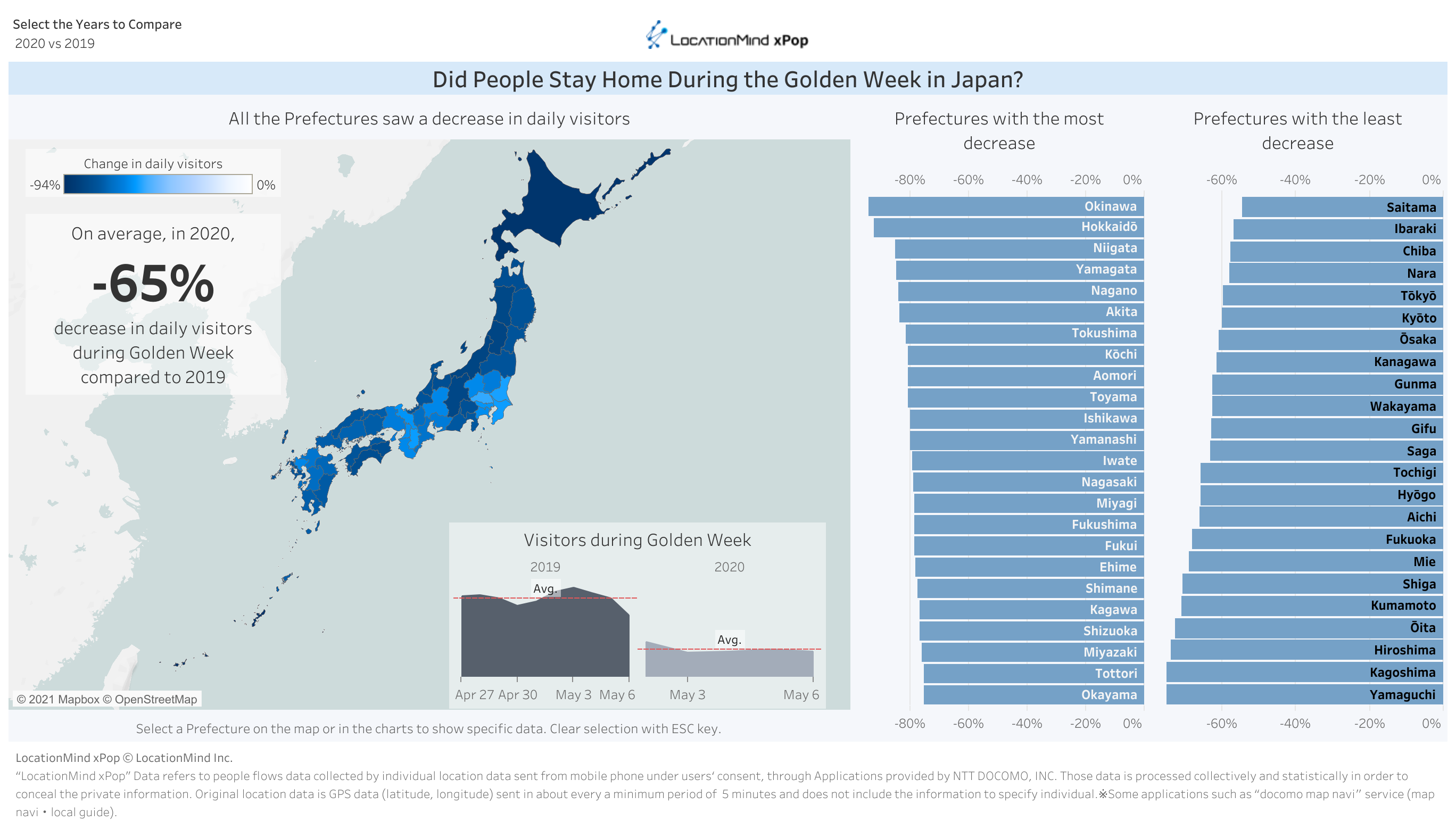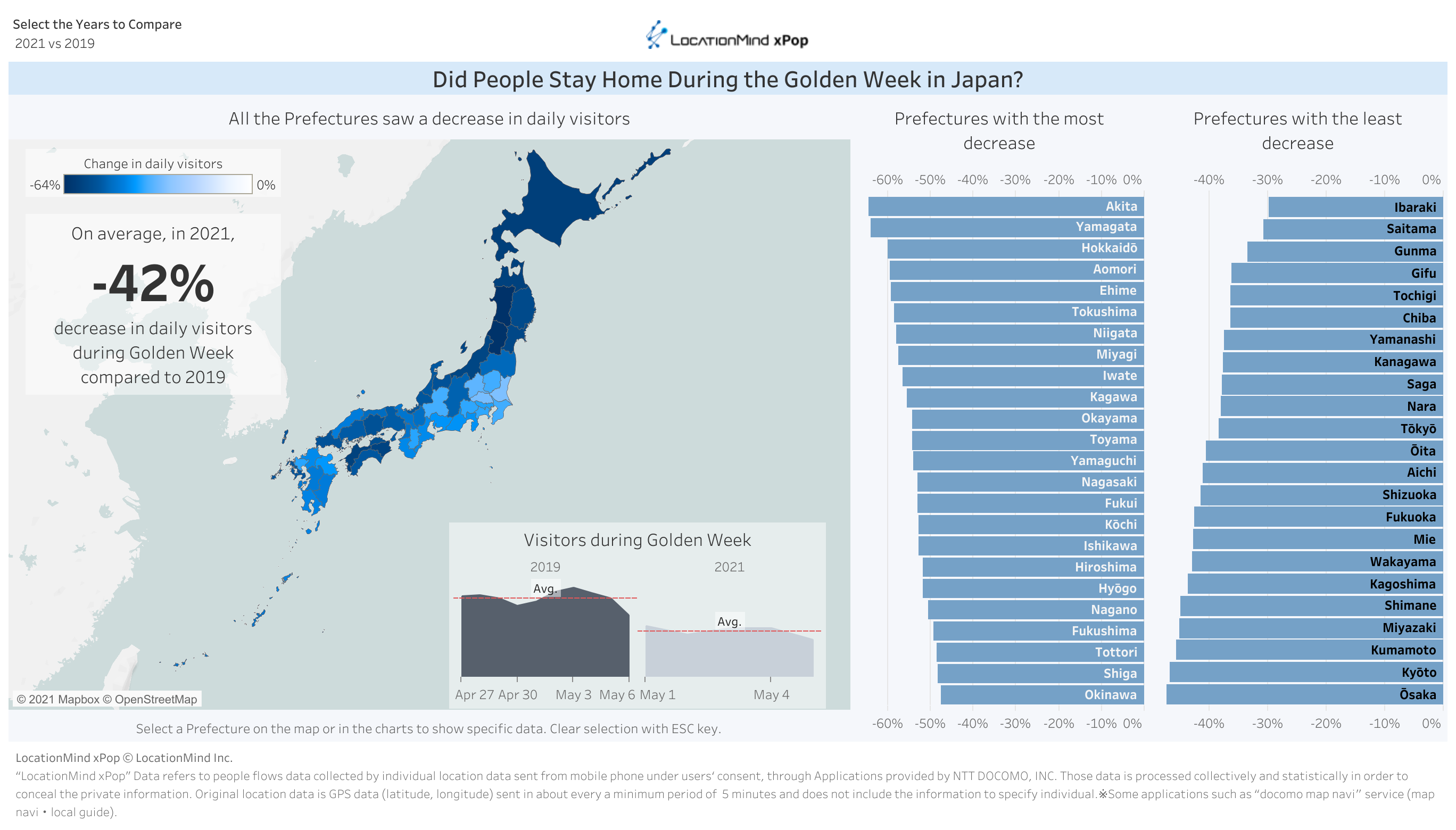News

The COVID-19 pandemic has not only disturbed international travel but has also affected inland vacation tourism. In Japan, there are three major vacation periods: the Japanese New Year's (January), Golden Week (May), and Obon (August). Of these, the Golden Week is arguably the most awaited vacation period in the year. Probably the only time where most Japanese families are all on vacation at the same time.
In 2019, with weekends and other holidays, the vacation period reached a record of 10 consecutive days. However, the Golden Week vacation lasted for five days in 2020. As a result, discounted rail travel campaigns and vacation packages that take tourists to remote areas were often sold out. Such movement translates into a lot of economic activity for the visited Prefectures. However, last year, due to the COVID-19 situation, all of Japan was in a state of emergency. As a result, the Government agencies strongly discouraged travel between Prefectures.
Moreover, fearing infections, several cancel their travel plans. Though, amid a pandemic, the Golden Week of 2021, like last year's 2020, required a nationwide refrain from travel between prefectures. What impact did this situation have on the number of travelers in Japan? We use the LocationMind xPop© dashboard to see the changes.
LocationMind developed the xPop© Dashboard.
At LocationMind Inc., using data initially collected by NTT Docomo, we developed the LocationMind xPop© Dashboard. The LocationMind xPop© Dashboard helps to understand how these circumstances impacted the volume of travel within Japan. The dashboard visualizes COVID-19 impact on travel in Japan. We looked at the change in the average number of people traveling per day from one Prefecture to another. The difference between the duration of Golden Week in three years allows measuring the change in travel movement. Moreover, it offers a tool to visually evaluate how much the country and each Prefecture affected by the COVID-19 situation.
What was the impact?
Since last year and this year's Golden Week period were different, we focused on the average number of people traveling each day. We used LocationMind xPop's statistical data* to see how Japan and each prefecture were affected.
First of all, compared to Golden Week 2020, right after the Government declared the first state of emergency, Golden Week 2021 saw an average increase of 65% in the number of travelers per day nationwide. In addition, there is a significant increase in visitors to Okinawa Prefecture (+806.2%) and Hokkaido (+436.0%), which saw a substantial decrease in visitors in a similar analysis last year.

Next, let's compare 2021 with 2019, the year before the spread of infection. All of Japan is still strongly affected by the new coronavirus infection. 2021 Golden Week saw an average 42% decrease in the number of travelers per day nationwide compared to 2019, before the spread of the disease. All prefectures saw a decline of almost 30% or more. Ibaraki prefecture was the least affected (-29.9%), while Akita Prefecture was the most affected (-64.4%), closely followed by Yamagata Prefecture (-64.0%).

The comparison suggests that even a year after the initial declaration of the state of emergency, the call for refraining from travel was still effective in getting people to stay home.
Next, prefectures that were least affected were Ibaraki (-29.9%), Saitama (-30.7%), Gunma (-33.4%), and Gifu (-36.2%), all of which are close to major metropolitan areas. This shows that while tourists visited prefectures relatively close to metropolitan areas with large populations, the farther away from the metropolitan areas, the more markedly the decrease in tourists.
In conclusion, this year's Golden Week saw a marked increase in the number of visitors compared to the previous year, but the increase is minimal compared to before the spread of the infection. Comparing daily averages for Japan as a whole, it seems that the number of visitors in 2021 has increased significantly (+65%) compared to 2020, but the number continues to decrease (-42%) compared to 2019. There are no prefectures that have reached the level before the spread of the infection. Even in prefectures such as Okinawa and Hokkaido, where the number of tourists increased significantly compared to last year, the impact of the significant decrease in tourists due to the pandemic remains strong.
On the whole, it seems that Japanese people spent most of this year's Golden Week at home, just as they did last year.
Contact us if you would like to use this information.
LocationMind xPop ©
LocationMind Inc.
*“LocationMind xPop” Data refers to people flows data collected by individual location data sent from mobile phone under users‘ consent, through Applications provided by NTT DOCOMO, INC. Those data is processed collectively and statistically in order to conceal the private information. Original location data is GPS data (latitude, longitude) sent in about every a minimum period of 5 minutes and does not include the information to specify individual.※Some applications such as “docomo map navi" service (map navi・local guide).
※As of March 2024, we are not using the 'docomo map navi' as disclosed on this page.
